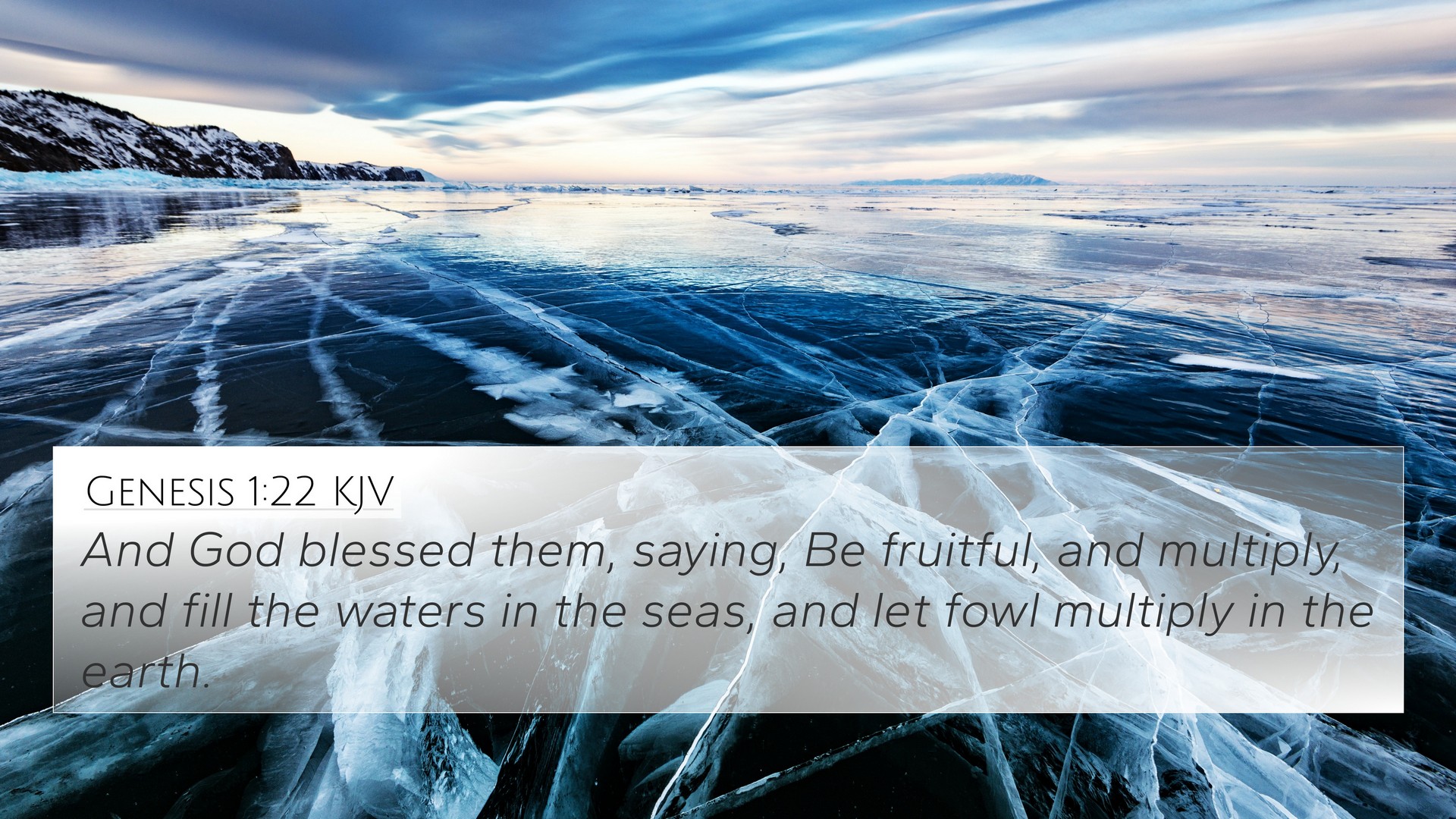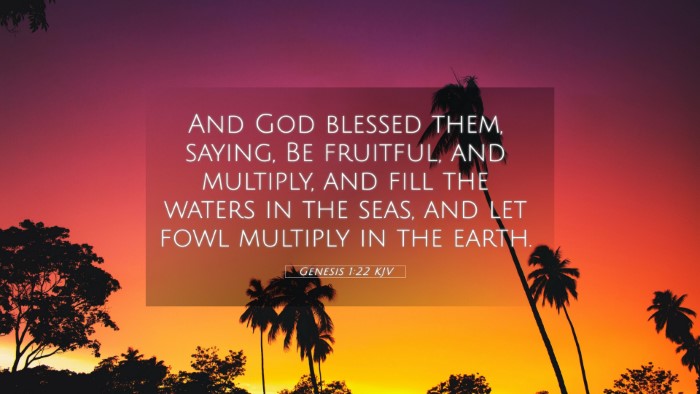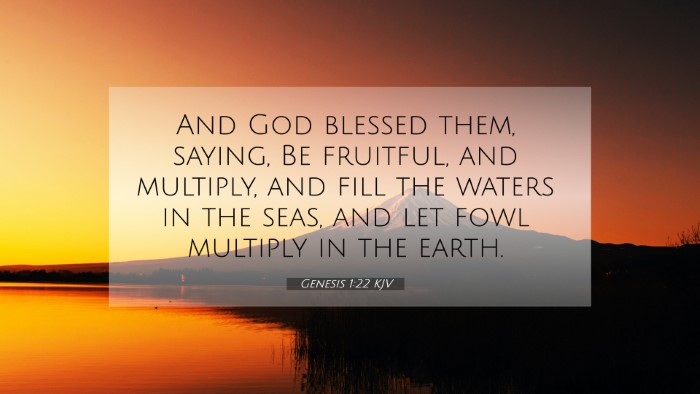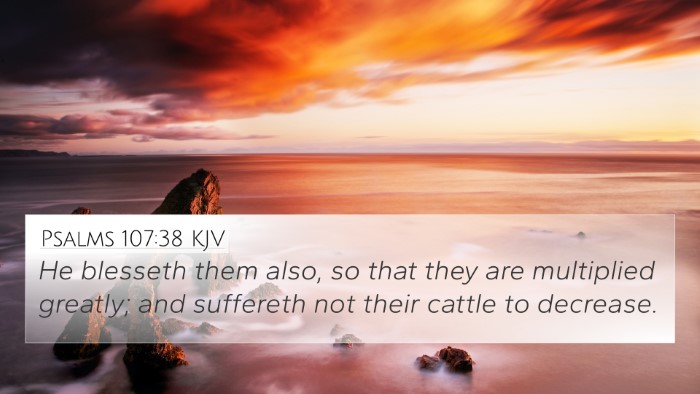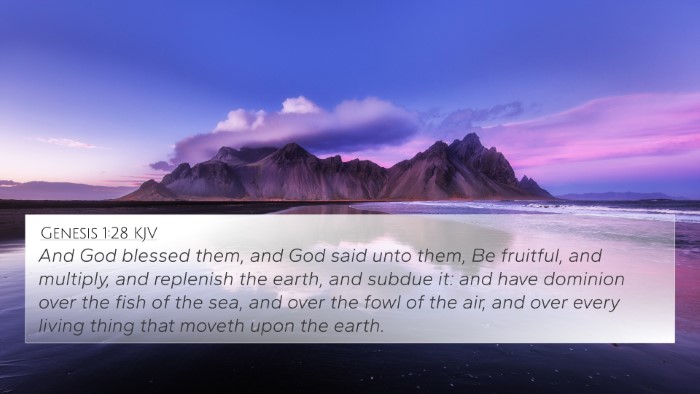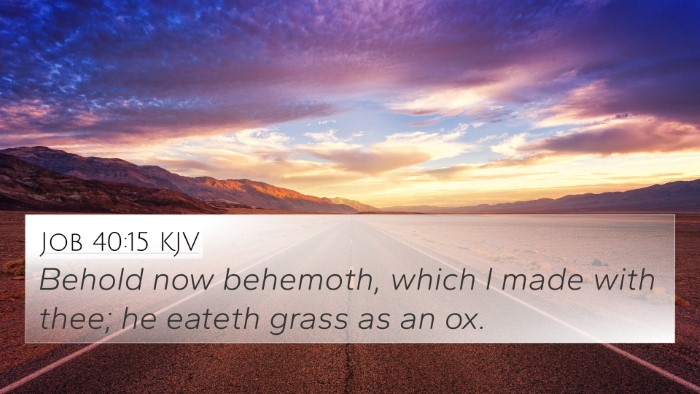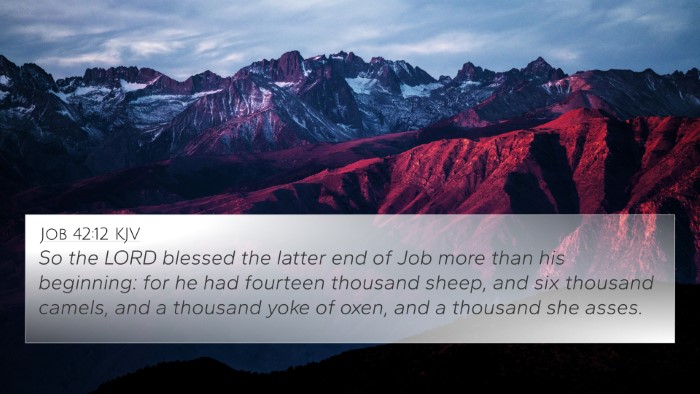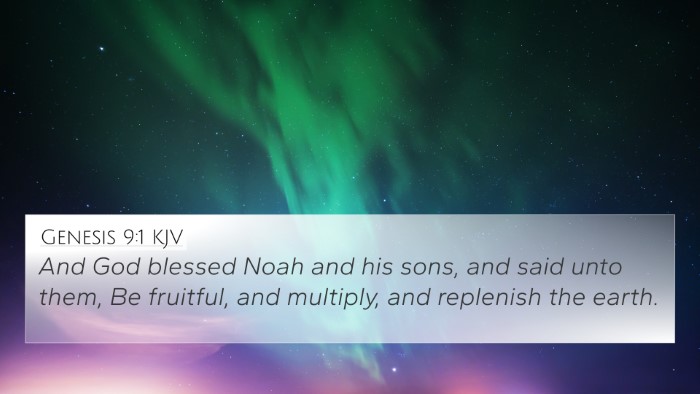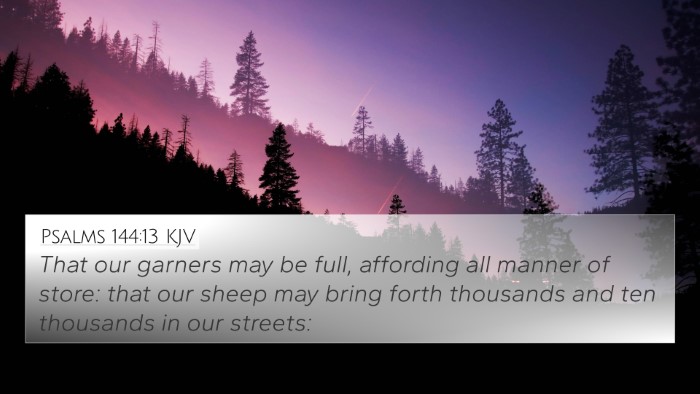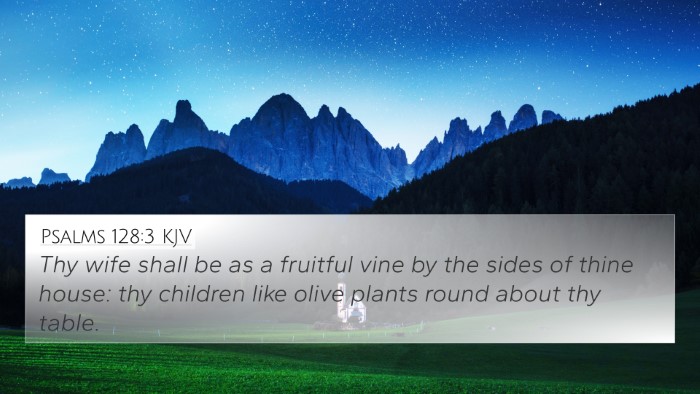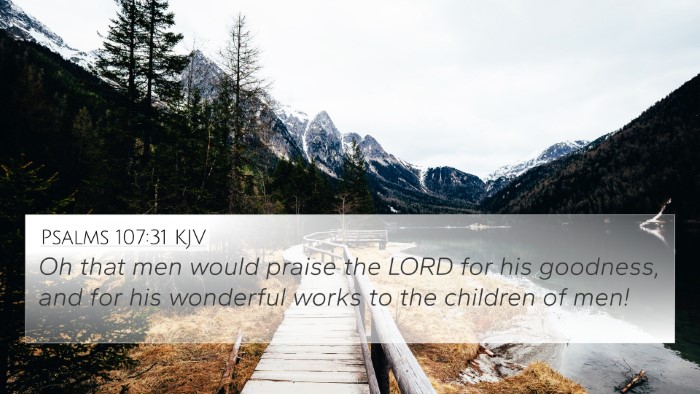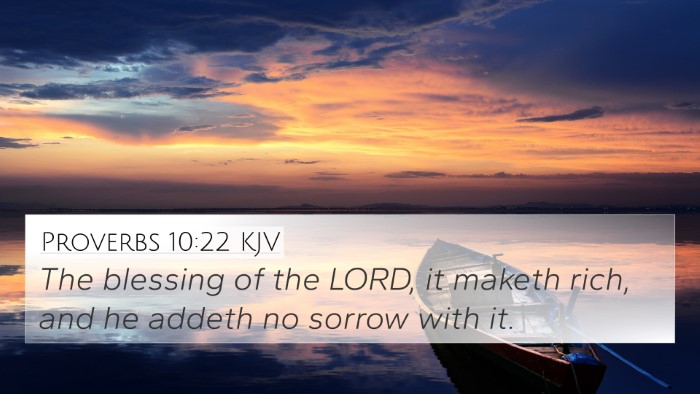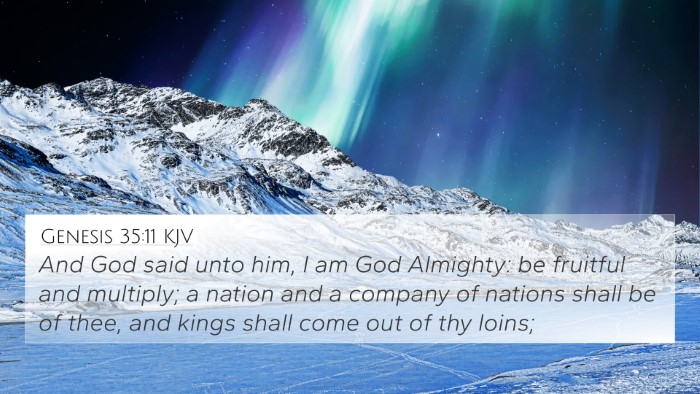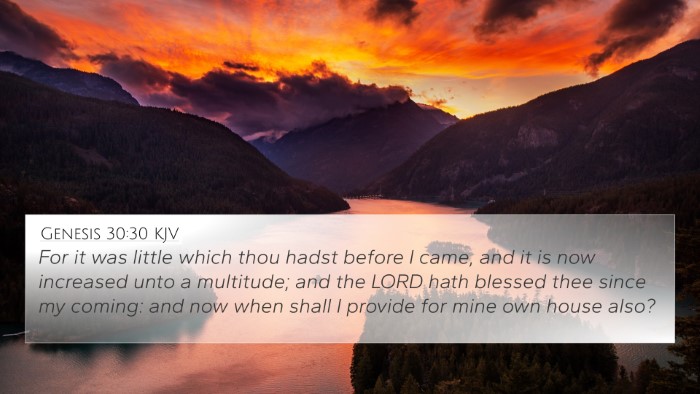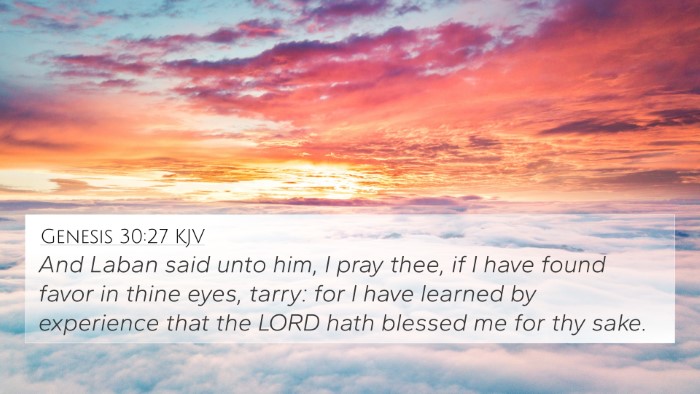Understanding Genesis 1:22
Genesis 1:22 states, "And God blessed them, saying, Be fruitful, and multiply, and fill the waters in the seas, and let fowl multiply in the earth." This verse encapsulates the divine command given to the creatures of the sea and the birds of the air, symbolizing the abundance of life and God's ongoing creation.
Commentary Insights
Matthew Henry's Commentary emphasizes the significance of God's blessing in this verse. He notes that the command to be fruitful and multiply is not merely a suggestion but a blessing from God. This shows the purpose of creation; life is designed to thrive and proliferate.
Henry also highlights that this blessing is directed towards the creatures of the sea and air, signifying God's intent for diversity and abundance within His creation. The act of multiplication is seen as an essential aspect of fulfilling their created purpose.
Albert Barnes' Notes focus on the nature of the command itself. He elaborates that this wording reflects a theme prevalent in the early chapters of Genesis—God's sovereign authority over creation. The repetition of the command to multiply reflects the importance of growth and sustainability in the created order.
Barnes explains that the phrase "fill the waters" indicates that God's creation was to flourish, embodying the notion of ecological balance. Each creature plays a role in the ecosystem, maintaining harmony in God's design.
Adam Clarke's Commentary brings an interesting perspective on the relationship between creation and divine blessings. He points out that God's blessing is foundational for life; without it, creation cannot fulfill its purpose. Clarke asserts that this divine command underscores the inherent value of life and the need for stewardship over it.
He notes the command to multiply also serves a spiritual implication in that it reflects God's desire for His creation to thrive not just biologically, but also spiritually, as humanity similarly is called to bear fruit in a moral and spiritual sense.
Bible Verse Cross-References
- Genesis 9:1: God blesses Noah, commanding him to be fruitful and multiply, repeating the theme of life and multiplication.
- Psalm 104:25-26: Describes the diversity of sea creatures and the majesty of God's creation in the sea, which aligns with Genesis 1:22's focus on aquatic life.
- Isaiah 45:18: Declares that God created the earth to be inhabited, supporting the idea of abundance in creation.
- Matthew 28:19: Christ's commission to His disciples to go forth and make disciples mirrors the command to multiply, emphasizing spiritual growth.
- Acts 2:47: The early church experienced growth and increase, demonstrating the fulfillment of the command to multiply in a spiritual context.
- Genesis 1:28: God's blessing to humanity to be fruitful, multiplying and subduing the earth, connecting directly with the command given to creatures on the fifth day.
- Revelation 22:1-2: A vision of the River of Life, illustrating the ultimate flourishing of God's creation.
Thematic Bible Verse Connections
The command in Genesis 1:22 creates a foundation for understanding various theological themes in Scripture. Here are some insights into thematic connections:
- Creation and Mandate: The creation narrative sets a precedent for the purpose of life, establishing that multiplication and stewardship are key aspects of God's design.
- Blessing of God: God’s blessings are integral to life flourishing, which is a recurring theme throughout the Bible.
- Spiritual Multiplication: The juxtaposition of biological and spiritual multiplication underscores the holistic approach toward life in the Christian faith.
- Ecological Balance: The diversity of God's creation and the instructions to fill the earth illustrate His concern for environmental stewardship.
Conclusion
In understanding Genesis 1:22, we recognize its rich theological depth and implications for both creation and humanity. By exploring connections through Bible verse cross-references and thematic links, we gain a fuller understanding of God's intentions and the importance of our role in the continuity of His creation. Through tools for Bible cross-referencing and comprehensive analysis, we can appreciate the interconnectedness of Scripture, enhancing our study and understanding of the Bible.
